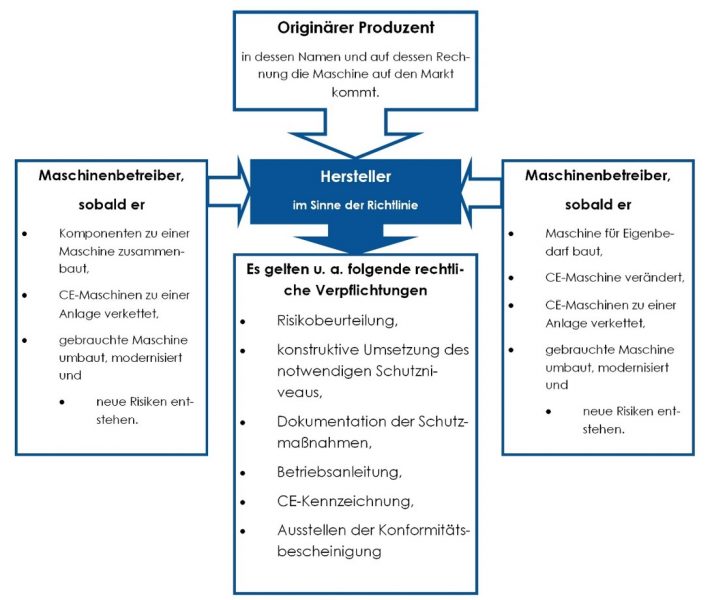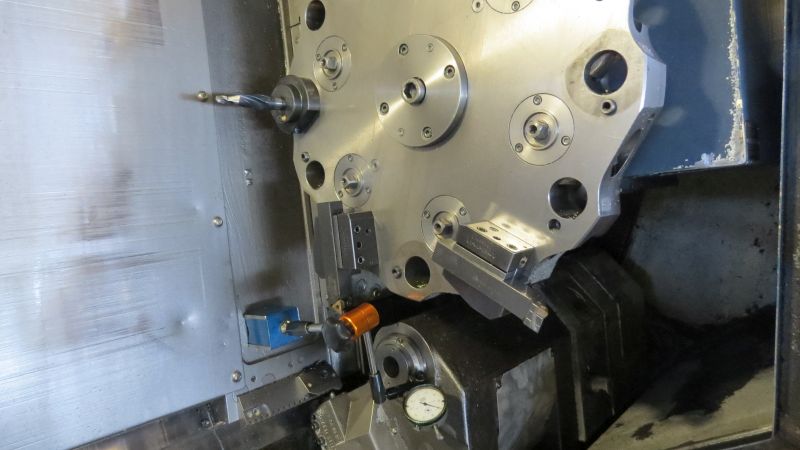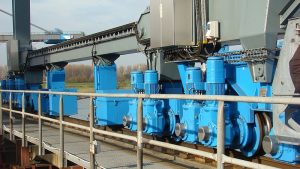Manufacturer definition
A manufacturer within the meaning of the Machinery Directive is not only the actual producer in whose name and on whose account machinery enters the domestic market. A manufacturer is, for example, also the person who functionally links components (commercial goods with CE marking and manufacturer’s declaration of one or more manufacturers) to form machines or CE machines to form systems. He is then also legally responsible for the safety of the entire plant.
Test "Manufacturer in the sense of the Machinery Directive
Whether the safety level (including all formalities) of a comparable CE machine must be achieved during conversion depends crucially on whether new risks arise as a result of conversion measures that are no longer covered by the existing protective measures. Only honestly carried out risk analyzes and risk assessments can provide information about this. Anyone who carries out changes as an operator must carry out a hazard analysis and risk assessment.

The general rule:
Manufacturer within the meaning of the Machinery Directive is the person who is responsible for the development and manufacture of a machine. The manufacturer has the same status as his authorized representative established in the Community.
CE marking
With the CE marking, the manufacturer confirms the conformity of the product with the applicable EC directives and compliance with the “essential requirements” specified therein.
The CE marking must be affixed visibly, legibly, unmistakably and permanently on the product or on the label attached to it by the manufacturer or his authorized representative established within the Community.
The manufacturer of the product is usually responsible for this labeling (for manufacturers outside the EU, an authorized representative established in the EU is required). If the manufacturer outside the EU has not fulfilled his obligation, this obligation is transferred to his representative in the EU or the importer or ultimately to the distributor (colloquially “seller”).




